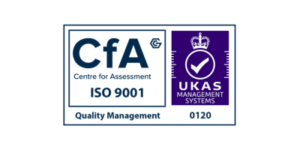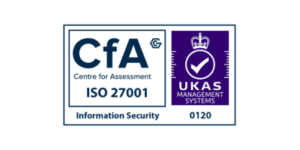SRSCC delivers the Advanced Diploma in Procurement and Supply Operations.
Designed to enhance organisational procurement.
SRSCC delivers the Advanced Diploma in Procurement and Supply Operations.
Designed to enhance organisational procurement.












SRSCC’s CIPS Level 5 Advanced Diploma in Procurement and Supply is aimed at senior buyers, contract managers or supply chain managers working in industry. This program, designed by the Chartered Institute of Procurement and Supply (CIPS), is designed to provide the necessary expertise to develop or enhance skills in fulfilling organisational and functional objectives in purchasing and supply. If you are already experienced in the industry and looking to progress further into a managerial role or something similar, this course is perfect for you.
As organisations outsource more and more activity it is vital that they ensure that the associated contracts deliver expected services and/or products. Hence, a fundamental area that those who are tasked with managing the procurement and supply function are faced with
is the identification, monitoring and management of contractual risk.
This module is designed to enable learners to examine the nature of contract risk and the associated legal implications that relate to contract formation and non-conformance. They will also consider the impact of breach of contract and coping strategies to address such breaches.
In any organisation, a significant element of the procurement and supply function is based
around the contracting process. Those involved in the formulation and management of contracts with external suppliers must therefore have a clear understanding of the strategic nature of contractual performance measures in procurement and supply.
Financial management refers to the efficient and effective management of money (funds) to accomplish organisational objectives. This module is designed for those working in the procurement and supply field, with responsibility for contracting elements of the procurement
and supply function who must also have a strategic awareness of the impact of financial aspects of their discipline.
Risk management is a central part of an organisation’s strategy. It is a process whereby the
organisation will identify, record and then address the risks associated with their activities
with the aim of driving out or controlling those risks to the overall benefit of organisational
efficiency and effectiveness.
The supply chain is by its very nature a complex activity which
is therefore susceptible to risk and its associated impacts. This module is designed to enable
learners to examine the nature of supply chain risk and to evaluate mitigation techniques
which are available to them as they deal with the associated challenges. They will undertake
risk analysis and consider the advantages of a risk register as they apply a range of
appropriate risk management tools and techniques to the supply chain.
As organisations outsource more and more activity it is vital that they ensure that the associated contracts deliver expected services and/or products. Hence, a fundamental area that those who are tasked with managing the procurement and supply function are faced with
is the identification, monitoring and management of contractual risk.
This module is designed to enable learners to examine the nature of contract risk and the associated legal implications that relate to contract formation and non-conformance. They will also consider the impact of breach of contract and coping strategies to address such breaches.
In any organisation, a significant element of the procurement and supply function is based
around the contracting process. Those involved in the formulation and management of contracts with external suppliers must therefore have a clear understanding of the strategic nature of contractual performance measures in procurement and supply.
Financial management refers to the efficient and effective management of money (funds) to accomplish organisational objectives. This module is designed for those working in the procurement and supply field, with responsibility for contracting elements of the procurement
and supply function who must also have a strategic awareness of the impact of financial aspects of their discipline.
After completing five compulsory modules, you will then need to choose three of the elective units below to earn the final credits you’ll need to finish the course. Enhance your expertise with a deep dive into the latest industry trends and practices.
Competitive advantage is associated with the processes and procedures that an organisation has at its disposal to outperform its competitors. Many organisations see their supply chains as a significant source of achieving competitive advantage. It is therefore important that those with responsibility for managing the supply chain have a clear understanding of the approaches and techniques that are available to leverage the supply chain to achieve competitive advantage.
This module is designed for such managers responsible for formulating plans and approaches to achieve competitive advantage for their organisations through the supply chain.
This includes course videos and revision sessions for each module plus formative assessment from our CIPS qualified tutors and practitioners.
Our online Independent Learning Zone includes structured teaching throughout breaking the sessions into bite size pieces making it easy to follow. Learners can work at their own pace through learning outcomes.
The voiceover makes it unique to any other distance option on the market allowing the content to come to life with many real-life examples and guidance on best practice. The content is easy to follow with the links learning outcomes and formative assessments including assignment, quizzes, and questions throughout.
Constructive feedback on assignments and exam techniques is given on all work submitted. The ILZ system tracks the learners progress through the unit.
In addition, all learners have access to other resources such as revision guidance, revision sessions, self-test questions plus additional resources.
This includes 2-day real time online classroom workshops with a fully qualified procurement practitioner who will bring the theory to life with real life practical examples. Covering all modules and learning outcomes leaving the learner full of confidence to tackle the formative assessments and prepare for their examinations.
This delivery option also benefits from live virtual classroom revision sessions and access to our fully comprehensive Independent Learning Zone (ILZ) which includes course videos and revision sessions for each module.
To ensure quality and value we operate maximum class sizes. All course modules are delivered by our experienced team of procurement practitioners who are MCIPS/FCIPS, Chartered Professionals and CIPS assessors.
Learners will gain a broad understanding of the key steps in procurement and supply, as well as a solid foundation for individuals who work with complicated and unique issues within the sector.
Exploring a multitude of elements that underpin the development of business cases and specifications, this module is for learners who are required to analyse, interpret and evaluate different market’s information.
This module is highly relevant for learners who have a responsibility for the development of legally binding contracts and/or are already operating in the procurement and supply industry.
Developed to provide procurement and supply professionals the opportunity to analyse the essential processes used to evaluate possible external suppliers and assure the establishment of ethical and socially responsible sourcing agreements.
Through specific techniques and methodologies, you will learn to identify approaches which will secure negotiated commercial agreements with external organisations and parties.
Nurturing a successful supplier relationship is a significant element for procurement professionals, following the completion of this module, learners will be able to successfully maintain and manage relationships with both stakeholders and suppliers.
Following the undertaking of this module, learners will be adept at explaining methods of inventory storage and control, as well as able to analyse the concept of whole life cost from conception, through to disposal.
As a result of studying this module, learners will not only theoretically understand key elements of procurement and supply management, they will also be able to apply their knowledge into real world business situations, as part of the procurement and supply process.
Want to know more about CIPS Level 5? Contact our team now
CONTACT USThe CIPS Level 5 course is the natural progression from the CIPS Level 4 and is for individuals looking to work at managerial levels of the CIPS Global Standard for Procurement and Supply.
The Level 5 Procurement and Supply course is for those who are already experienced in the industry and are looking to progress further into a managerial role or something similar. It’s perfect for those that have achieved the CIPS L4 Advanced Certificate and are looking to progress further into the Supply and Procurement profession.
On completion of this qualification, you can expect to improve your overall organisational procurement and supply performance to fulfil your organisational objectives.
The following are core modules and must be completed:
These are the elective modules, 3 of which you must choose to make up the rest of your grade:
Supply Chain
Each of our CIPS courses entails structured learning and additional support for those who need it. Our mentors will provide you with the best guidance and support as well as many resources that are available to aid your learning.
The expected overall completion time is 600 hours which is the overall number of guided learning hours, additional self-study and assessment time that is required. Approx 12 months.
The CIPS Level 5 Advanced Diploma qualification isn’t industry-specific. We see individuals from all different sectors such as the automotive industry to food manufacturing and everything in-between.
CIPS Level 5 Advanced Diploma in Procurement and Supply– aimed at experienced buyers and managers who wish to pursue a strategic management/leadership role in procurement. Typical job titles at this level:
Learning materials are provided on all aspects of our courses.
Embark on your journey to becoming a supply chain management expert.
Explore our course overview and contact our team on 01772 282555 or by email info@srscc.co.uk for all the information you need, including learning methods and additional details.
We’ll work with you to find the perfect fit. Start today and reach out to begin your transformative experience.









Operations Team Leader
In December 2023, Jack joined SRSCC as an Operations Coordinator and quickly established himself as a key member of the team.
Promoted to Team Leader in October 2024, Jack utilises his expertise in auditing processes and innovative problem-solving to identify and enhance growth opportunities.
Jack possesses a strong ability to analyse and refine systems and procedures, consistently uncovering chances for streamlining and automation that drive operational efficiency. He excels at communicating complex ideas with clarity and precision.
Detail-oriented yet big-picture focused, Jack applies his exceptional organisational skills to ensure the team adopts the most effective strategies for achieving both individual and collective goals.
His methodical approach and strategic mindset make Jack an invaluable asset to SRSCC, significantly contributing to the team’s success and the realisation of organisational objectives.